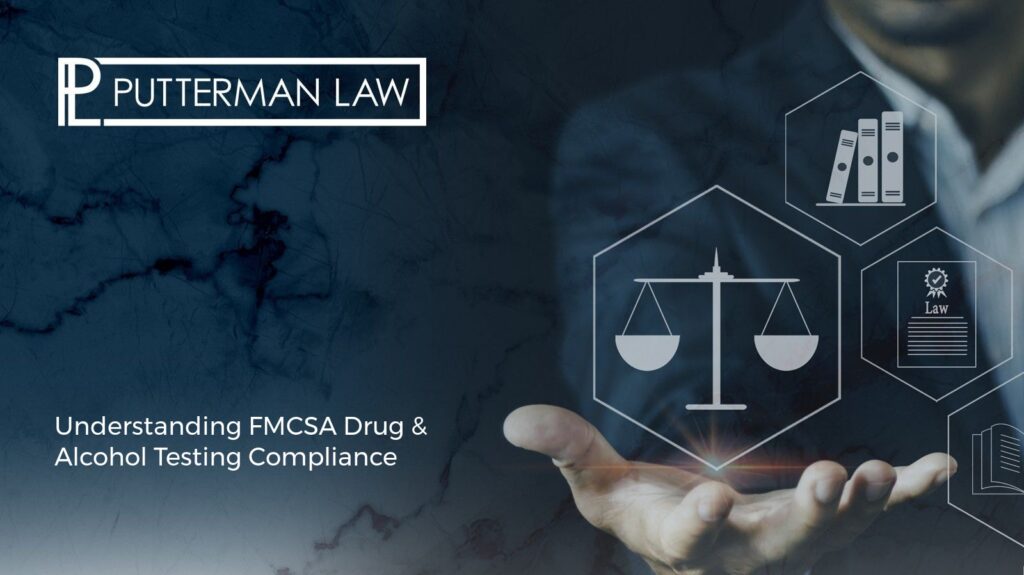The Federal Motor Carrier Safety Administration (FMCSA) enforces regulations to ensure the safety of commercial motor vehicle operations. One critical aspect of these regulations is drug and alcohol testing compliance for carriers. Here, we explore the importance of FMCSA regulations and their implications for carriers.
Key Concepts in Drug & Alcohol Testing Compliance
To comply with FMCSA regulations, carriers must understand various testing procedures and rules. Key concepts include pre-employment testing, random testing, post-accident testing, and return-to-duty testing. Carriers must also be familiar with the frequency and conditions under which these tests are conducted.
Importance of Compliance for Carriers
Compliance with FMCSA regulations is crucial for carriers to avoid penalties and maintain operational safety. Non-compliance can result in significant fines, legal jeopardy, and risk to driver and public safety. This article provides a detailed understanding of how carriers can effectively navigate these regulations.
FMCSA Drug & Alcohol Testing Requirements
Under FMCSA regulations, carriers must implement a comprehensive drug and alcohol testing program. Key requirements include pre-employment testing for safety-sensitive positions, random testing throughout employment, and post-accident testing under specific circumstances. The FMCSA mandates that carriers must use a certified laboratory for testing and report results to the FMCSA Clearinghouse.
Key Elements of Testing Programs
Pre-employment testing is crucial for ensuring that potential hires in safety-sensitive positions are free from illegal substances. Random testing, conducted unpredictably throughout employment, serves as a deterrent against substance abuse. Moreover, post-accident testing is mandatory when certain criteria are met, such as when a driver receives a citation for a moving violation or when there is a fatality involved. Lastly, return-to-duty testing is essential for drivers who have previously tested positive and are re-entering the workforce.
Implementing a Compliant Testing Program
Carriers must develop and maintain a written drug and alcohol testing policy. This policy should outline the procedures for all types of testing (pre-employment, random, post-accident, return-to-duty) and detail the consequences for positive test results. Additionally, carriers must ensure all testing programs comply with FMCSA guidelines and utilize the proper chain of custody procedures.
The Role of a Written Policy
A well-documented policy is the cornerstone of any compliant testing program. It ensures that all employees are aware of the rules and the actions taken following a positive test. Additionally, the policy should be reviewed regularly to ensure it aligns with current FMCSA regulations.
Practical Steps for Carriers to Ensure Compliance
To ensure compliance with FMCSA regulations, carriers should take the following steps:
- Regularly train drivers and employees about the drug and alcohol testing policies.
- Maintain accurate and up-to-date records of all test results, procedures, and policy changes.
Training and Education
We believe that education is a critical element in maintaining compliance. Training should cover all aspects of the drug and alcohol testing program, including how tests are conducted, what substances are tested for, and what happens if a test is positive. The goal is to make sure everyone understands the importance of these tests and complies with the established policies.
Maintaining Records and Monitoring Compliance
Record-keeping is equally important. Carriers must maintain detailed records that include the dates of tests, the types of tests performed, and the results. Additionally, we recommend regular audits of these records to ensure they are complete and up-to-date. This helps in demonstrating compliance during any FMCSA reviews or inspections.
Did you know that FMCSA regulations require pre-employment drug testing for all commercial drivers to enhance road safety?
Maintaining Compliance: A Continuous Effort
Ensuring ongoing compliance with FMCSA regulations requires diligence and a proactive approach. Carriers must adopt a mindset of continuous improvement and stay updated with any regulatory changes. This often involves ongoing education, regular audits of testing programs, and robust communication channels within the organization. At Putterman Law, we understand the complexities of maintaining compliance, and we are committed to supporting carriers through this process.
Related Article: Understanding AB 5’s Impact on Logistics Providers
Training and Education
One of the most effective ways carriers can maintain compliance is through regular training and education. By providing employees with knowledge about drug and alcohol testing policies, carriers can foster a culture of safety and compliance. Training should cover the details of the testing procedures, the consequences of non-compliance, and the importance of adhering to FMCSA regulations.
Record Keeping and Documentation
Accurate and up-to-date records are essential for demonstrating compliance with FMCSA regulations. Carriers should meticulously document all aspects of their drug and alcohol testing programs, including test results, training records, and any incidents of policy violations. These records should be readily available for inspection by regulatory authorities.
Related Article: Understanding Force Majeure in Logistics Contracts
Regular Program Audits
Conducting regular audits of your drug and alcohol testing program can help identify potential gaps in compliance. Carriers should review their policies and procedures periodically to ensure they align with current FMCSA regulations. This proactive approach helps identify and address any issues before they escalate.
Partnering with Experts for Compliance
Navigating FMCSA regulations can be complex and time-consuming. Partnering with legal experts who specialize in transportation logistics can provide valuable guidance. At Putterman Law, we offer comprehensive support to carriers, helping them develop and maintain compliant testing programs. Our expertise in transportation logistics ensures that carriers can focus on their operations while we handle the legal intricacies.
Conclusion
FMCSA regulations play a pivotal role in ensuring the safety and integrity of commercial motor vehicle operations. By understanding and adhering to these regulations, carriers can avoid penalties, enhance safety, and maintain a positive reputation. At Putterman Law, we are committed to helping carriers navigate these requirements effectively. Together, we can ensure that your operations are not only compliant but also optimized for long-term success.
FAQs
What are the essential components of a compliant FMCSA drug and alcohol testing program?
A compliant FMCSA drug and alcohol testing program should include pre-employment, random, post-accident, reasonable suspicion, and return-to-duty testing. It must follow federal guidelines and use certified laboratories and qualified professionals for testing and reporting.
How often should we provide training on FMCSA regulations and drug and alcohol policies?
Training should be provided annually to supervisors and employees, covering FMCSA regulations, company drug and alcohol policies, procedures for reporting violations, and consequences of non-compliance.
What kind of documentation is necessary for our FMCSA drug and alcohol testing program?
Documentation should include records of tests conducted, results, policy acknowledgments, training logs, random selection procedures, and any actions taken in response to violations. Proper recordkeeping ensures compliance and readiness for audits.
How do we conduct regular audits of our drug and alcohol testing program?
Audits should involve reviewing all testing records, training logs, and procedural compliance to ensure adherence to FMCSA regulations. Identifying gaps and implementing corrective actions helps maintain a robust and compliant program.
Why is it important to partner with legal experts in transportation logistics for FMCSA compliance?
Legal experts help ensure that your drug and alcohol testing program and overall FMCSA compliance are aligned with federal regulations. They can provide guidance on policy updates, mitigate risks, defend against violations, and protect your company from potential penalties.






